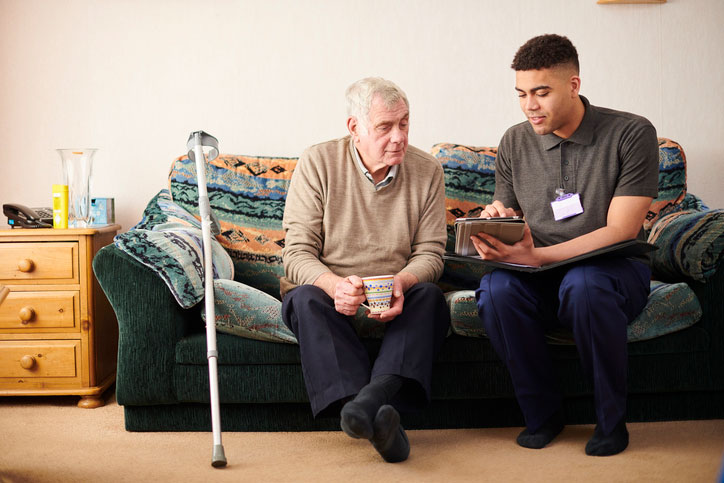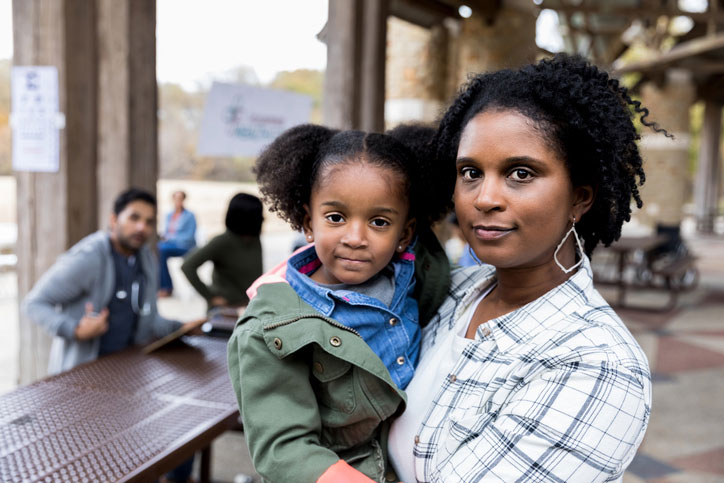Written by Scott Wilson

As one of only two different social work licenses available in New York, the LMSW (Licensed Master Social Worker) is something that every licensed social worker will earn.
That’s because the other social work license, the LCSW (Licensed Clinical Social Worker), is only available after a period of supervised clinical practice. And the only way to get that supervised practice is by working under the LMSW license you earn first. So for every licensed social worker in New York, the LMSW is where it all starts.
It’s possible to hold the LMSW for an entire career if the core function of the job doesn’t involve clinical practice, but it’s generally more natural for the LMSW to serve as a stepping-stone to the more advanced LCSW.
As a state-issued license, the practice authority it grants is recognized in every corner of the state, from Long Island to the Thousand Islands.
There’s plenty more to look into as far as understanding all the differences between the LMSW and LCSW, but that’s a good starting point for understanding where the LMSW fits into the social work licensing grid for New York.
To understand everything you need to know about practicing as a Licensed Master Social Worker anywhere in New York and what it takes to earn the license, we’ve got you covered right here.
The Reason For Social Work Licensing: Understanding LMSW License Authority In New York
The entire point of holding any license is to gain some official authority to practice certain types of controlled treatment or services.
For the NYS LMSW license, this authority is outlined in the New York State Education Law Article 154. It involves:
- Applying social work theory and methods to prevent, assess, and implement a plan of action for clients with mental, social, emotional, behavioral, developmental, or addictive disorders and disabilities, and address all the psychosocial aspects of illness and injury experienced by individuals and groups
- Administering tests and evaluating psychosocial functioning, performing social work advocacy, case management, counseling, consultation, research, and management
- Supervising other social workers in action with the exception of clinical social work
- Practicing clinical social work under the supervision of an LCSW in facilities or other supervised settings
These are abilities that come in useful across the spectrum of social work, in micro, macro, and mezzo roles. Just as important, they represent capabilities that only social workers can bring to the table—integrating knowledge of larger social processes together with expertise in dealing with individual struggles.
Earning the license also gives you the right to call yourself a licensed master social worker or LMSW. Anyone not licensed tries it on, they’re breaking the law.
Contrary to popular belief, LMSWs in New York can operate in private practice. They are not allowed to perform unsupervised clinical social work, however, so the work they do must be entirely in social work activities that are within the LMSW scope of practice. This generally includes all work done at the mezzo- and macro- levels, and any micro-level work that doesn’t involve clinical diagnosis and counseling.
You’ll Find LMSW Jobs Everywhere in New York
Social work careers in New York cross a range of different needs, specializations, and levels of practice, all of which are in demand. So you’ll find LMSW jobs in NYC and throughout the state are easy to find.
Many employers are just as willing to hire social workers with either an LMSW or LCSW license. Although your LMSW won’t qualify you to practice clinical social work independently, while under supervision you can handle all the same therapeutic and diagnostic activities as an LCSW.
The very fact that earning an LCSW requires 2000 contact hours of supervised clinical experience means it is standard practice in New York for employers to hire LMSWs with the understanding that they will be working under general supervision for at least the first three years. Since this is a process that’s built-in to the licensing process in New York, it’s also built-in to hiring practices.
Keep in mind that the supervision only applies to clinical diagnosis and counseling, which represents just one aspect of the social work happening in New York every day.
Even unsupervised, LMSWs have many important roles in human services and social justice throughout the state. With their own practice authority, they can land careers in fields like healthcare social work, forensic social work, and unhoused services dealing with case management, consultation, education, and advocacy.
You’ll have to brush up on your LMSW resume to land one of these positions, though. They take more than just a license. Your degree specializations, experience, and other personal qualities will all matter.
What Do LMSW Salary Levels Look Like in New York?
On balance, an LMSW can expect to make somewhat less than an LCSW in a position with similar responsibilities. The higher license level delivers additional qualifications and capabilities that are worth higher salaries.
But New York social work salaries are determined by a range of factors apart from licensing. Those can include:
- Experience on the job and in your field
- Type of employer, whether government agencies, non-profit organizations, or for-profit corporations
- Location within the state where you practice and the related cost-of-living
- Competition for social workers within your specialization
But every social worker also understands that salary itself is only part of the overall compensation for labor. Based on where you work, you may also get strong vacation, insurance benefits, and other worker-positive supports. Those can go a long way toward making a particular position the perfect fit for you.
How To Become an LMSW in New York

In some senses, your entire lived experience is how you become a licensed master social worker. Every encounter with injustice, every time you have seen inequality, every moment you’ve felt an urge to fix what is wrong in the world are building blocks in your sense of social justice and desire to help others.
The steps you take to become a New York social worker don’t happen overnight. It’s a long process during which you will make a lot of choices:
- What level of education you need to achieve based on any college you may have already completed
- What kind of organization you plan to work for, or whether your goal is to go into independent practice
- What sort of specialized social work role you want to fill
They are big questions with a lot of possible answers. Only some of those answers will lead you to the realization that you must first earn a license as a master social worker.
As outlined by the NYSED (New York State Education Department), qualifying for the LMSW involves:
- Being at least 21 years of age
- Having good moral character
- Meeting the education requirements by earning a MSW degree
- Passing the Master examination from the ASWB (Association of Social Work Boards)
- Taking addition coursework in identification and reporting child abuse
Earn an LMSW Degree
What is an LMSW degree? A Master of Social Work (MSW) is central to the process of becoming an LMSW, but there is a little more to it than that.
For the most direct path to NYS LMSW status, it’s best to pick one of the social work schools that are registered with the NYSED Office of the Professions as leading to licensure. These are effectively degrees that are pre-approved to contain the coursework and experiential training necessary to become licensed.
(NOTE: The NYSED, Office of the Professions is a busy state agency, and as such may fall behind in maintaining its list of registered programs. We identified a number of schools on the registered program list that are currently closed or that have rebranded. We provide a list below that is current as of late 2024.)
Your choices are:
- College of St. Rose - Department of Social Work - Master of Science in Social Work
- Columbia University - School of Social Work - Master of Science in Social Work
- CUNY College of Staten Island - Department of Social Work - Master of Social Work
- CUNY Hunter College - Silberman School of Social Work - Master of Social Work
- CUNY Lehman - School of Health Sciences, Human Services & Nursing - Master of Social Work
- Fordham University - Graduate School of Social Service - Master of Social Work
- Roberts Wesleyan University - Department of Social Work - Master of Social Work
- SUNY Albany - School of Social Work - Master of Social Work
- SUNY Buffalo - School of Social Work - Master of Social Work
- SUNY Stony Brook - School of Social Welfare - Master of Social Work
- Syracuse University - Falk College of Sport & Human Dynamics School of Social Work - Master of Social Work
- Yeshiva University - Wurzweiler School of Social Work - Master of Social Work
Note that it’s also possible to take a program registered as LCSW Qualifying and still meet all the standards for the LMSW. All LCSW programs exceed the LMSW requirements, with the added benefit of giving you a straight shot at the LCSW after you’ve accumulated enough experience for the license.
Of course, you can’t enter any master’s program without a bachelor’s degree behind you. A Bachelor of Social Work program from a CSWE-accredited college can qualify you for a one-year advanced-standing Master of Social Work degree, which shaves a full year off your schedule and accelerates your path to becoming an New York State LMSW.
Pass the LMSW Exam

LMSWs in New York are required to take and pass the Master-level exam offered by ASWB.
You can only get an authorization to test from ASWB after you have started your license applications process with NYSED. Once you put in your initial application and fill out the required forms for licensure, you’ll receive approval from the Office of the Professions to proceed with the exam.
The Masters exams consists of 170 multiple choice questions designed to test your knowledge and reasoning skills in line with the expectations required of an LMSW.
There’s a $230 fee to register for the exam.
It’s generally a good idea to take the ASWB’s online LMSW practice exam and go over LMSW practice questions before sitting down for the real thing. According to ASWB data from 2022, about a third of first-time test takers fail.
LMSW exam prep starts with knowing your stuff cold from your master’s degree program. But good test-taking strategies are also important, and understanding what to focus on in cram sessions can be a big help.
While the ASWB Masters exam is mandatory in LMSW licensing in New York today, there’s some debate about bias and a movement is underway to remove exam requirements.
A quick glance at an LMSW study guide will give you the exam content breakdown:
- Human Development, Diversity, and Behavior in the Environment - 27 percent
- Human Growth and Development
- Concepts of Abuse and Neglect
- Diversity, Social/Economic Justice, and Oppression
- Assessment and Intervention Planning - 24 percent
- Biopsychosocial History and Collateral Data
- Assessment Methods and Techniques
- Intervention Planning
- Interventions With Client/Client Systems - 24 percent
- Interventions Processes and Techniques for use across systems
- Intervention Processes and Techniques for use with larger systems
- Professional Relationships, Values, and Ethics - 25 percent
- Professional Values and Ethical Issues
- Confidentiality
- Professional Development and Use of Self
Questions include reasoning as well as general social work knowledge, so be prepared to think your way through some of the problems.
With the right LMSW test prep, the final pass rate comes out to almost 86 percent.
Meeting LMSW Continuing Education (CE) Requirements With Professional Certifications
LMSWs can’t just pick up a license and rest on their laurels, even if they aren’t actively pursuing LCSW status. Like other states, New York requires ongoing LMSW requirements for training to keep current in the newest developments in the field.
That means stacking up at least 12 hours of classroom coursework, attending professional conferences, or even teaching classes yourself each and every year. You are required to re-up your license every three years and submit proof of the required CEU time at that point.
For an LMSW, continuing education can also apply toward earning a specialty certification in certain social work roles. The National Association of Social Workers is probably the most highly respected organization that offers these certs, but it’s not the only one.
While some of these certs are only open to individuals with clinical licensure, others are available while you still hold an LMSW.
A professional certification tells employers and clients that you have developed a high level of expertise in your field. But for most LMSWs, that’s a secondary consideration. First and foremost is to ensure that you are delivering the best possible care and putting all your effort into helping people who need it.
2023 US Bureau of Labor Statistics salary and employment figures for Social Workers reflect national data, not school-specific information. Conditions in your area may vary. Data accessed April 2024.
